Are you facing the bittersweet decision to resign from your job because of your spouse's relocation? It's a common situation that many professionals experience, and navigating the resignation process can feel daunting. In this article, we'll provide you with a helpful letter template that expresses your gratitude, maintains professionalism, and ensures a smooth transition. So, if you're ready to make this change, keep reading for a step-by-step guide to crafting the perfect resignation letter!

Clear Statement of Resignation
Resigning from a position due to a spouse's relocation can be a significant life event impacting both personal and professional aspects. This decision often arises when one partner receives a job opportunity or a transfer requiring them to move to a different city or country. Employees may feel a sense of duty to support their spouse's career while also dealing with the challenges of leaving a job, which could include untangling workplace relationships and responsibilities. Resignations typically involve notifying employers in advance (often two weeks), allowing for a smooth transition of tasks. It's essential to express gratitude for the opportunities provided and to maintain a professional tone, ensuring future networking possibilities remain strong.
Mention of Spouse Relocation
Relocation due to a spouse's job opportunity often necessitates a career change. For instance, if an individual based in San Francisco, California, must move to Austin, Texas, this situation can arise when a spouse receives a promotion at a tech company. Such a significant life event, which may require moving out of state, can lead to the decision to resign from current employment. The emotional aspect of leaving colleagues and a familiar work environment might weigh heavily, especially after years of working together. Additionally, the logistics of the move, such as finding new housing and enrolling children in schools, become pressing priorities, making it vital to accommodate these changes. Ultimately, the need to support a spouse's career advancement may override personal career aspirations, leading to a difficult yet necessary decision to resign.
Last Working Day
A resignation due to the relocation of a spouse often creates a significant transition. Employees face the challenge of adjusting to new living circumstances while maintaining professional commitments. This decision usually leads to productive discussions regarding notice periods, often one month, allowing for a seamless handover of responsibilities. Spouses may relocate due to job opportunities or career advancements, necessitating careful planning to ensure that personal and professional life remains balanced during this change. Resigning gracefully fosters positive relationships with current employers, which could benefit future endeavors.
Expression of Gratitude
Resignation from a position due to spouse relocation can evoke feelings of both gratitude and sadness. Employees often reflect on the support received, professional growth opportunities, and meaningful relationships built during their tenure at companies such as Tech Innovators Inc., a mid-sized software firm known for its collaborative environment. The transition to a new location, perhaps a city like Austin, Texas, driven by a career advancement in a partner's field, poses challenges but also promises new adventures and fresh beginnings. Expressing heartfelt thanks toward managers and colleagues fosters goodwill and maintains professional networks, which is essential for future career endeavors. Acknowledgment of specific projects or initiatives shared highlights the impact of teamwork and mutual growth experienced during employment.
Willingness to Assist Transition
Relocating due to my spouse's new job opportunity has necessitated my resignation from the position I have held at [Company Name] for [duration of employment]. This decision is not made lightly, considering the supportive team and rewarding projects I have been part of. My last working day will be [Last Day of Work], allowing time to ensure a smooth transition. I am fully committed to assisting in handovers and training my replacement to ease the transition for the team and maintain project continuity. I appreciate the valuable experiences and relationships gained during my tenure at [Company Name].
Letter Template For Resignation Due To Spouse Relocation Samples
Letter template of resignation as a result of partner’s employment change.
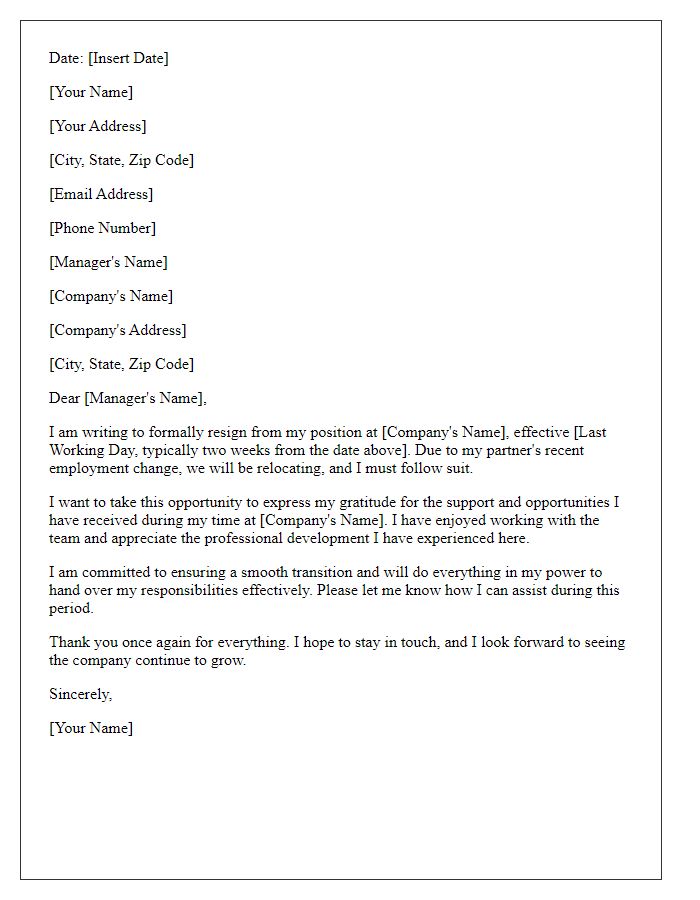

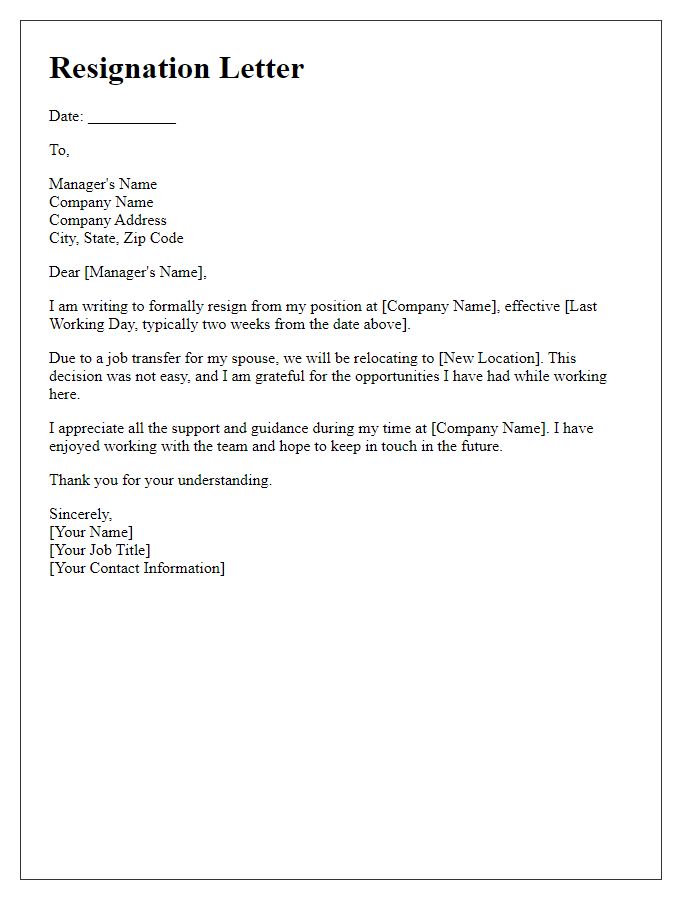
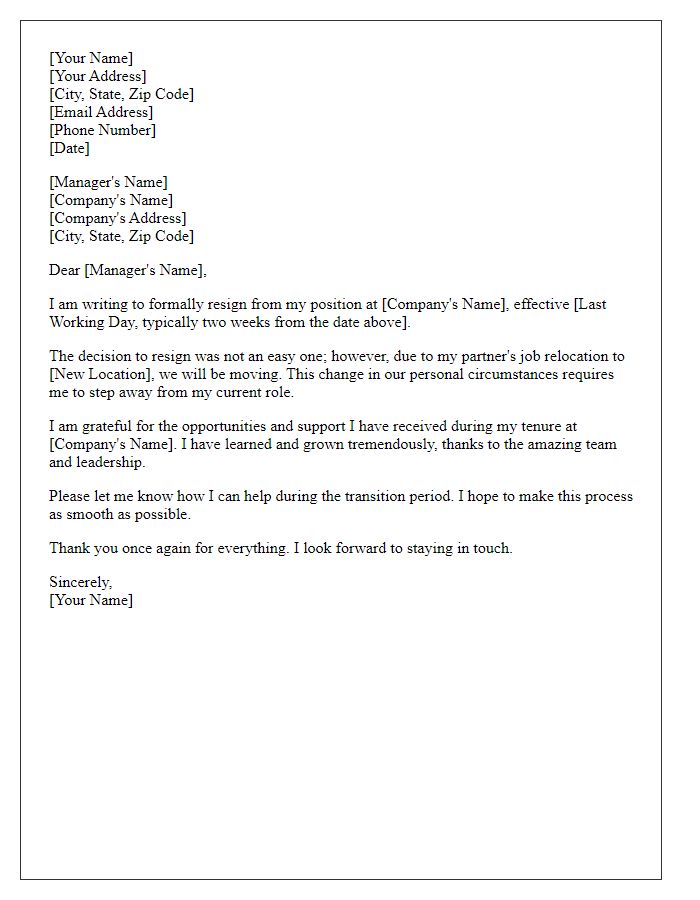
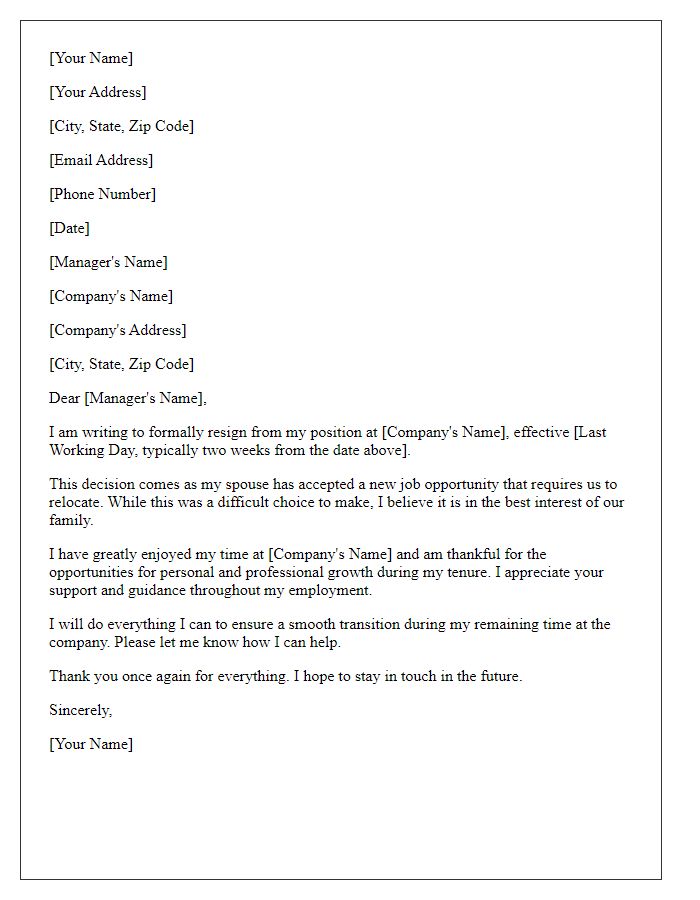
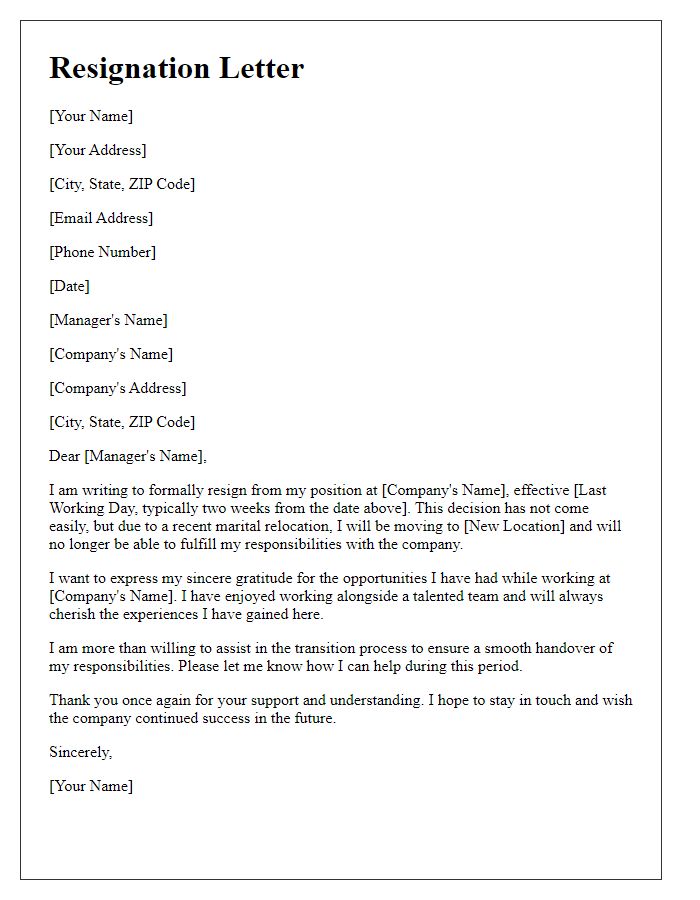
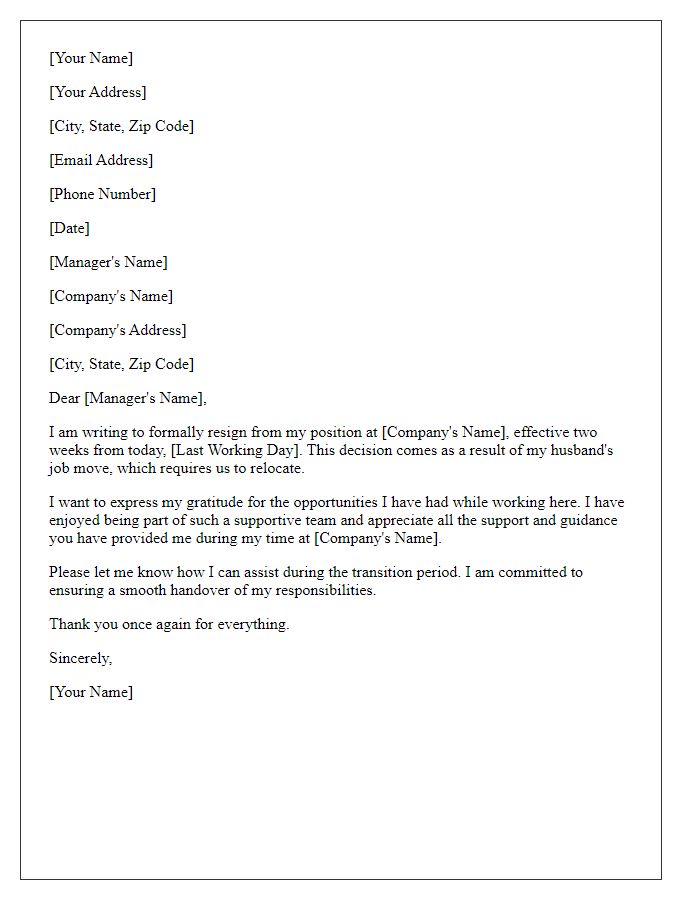
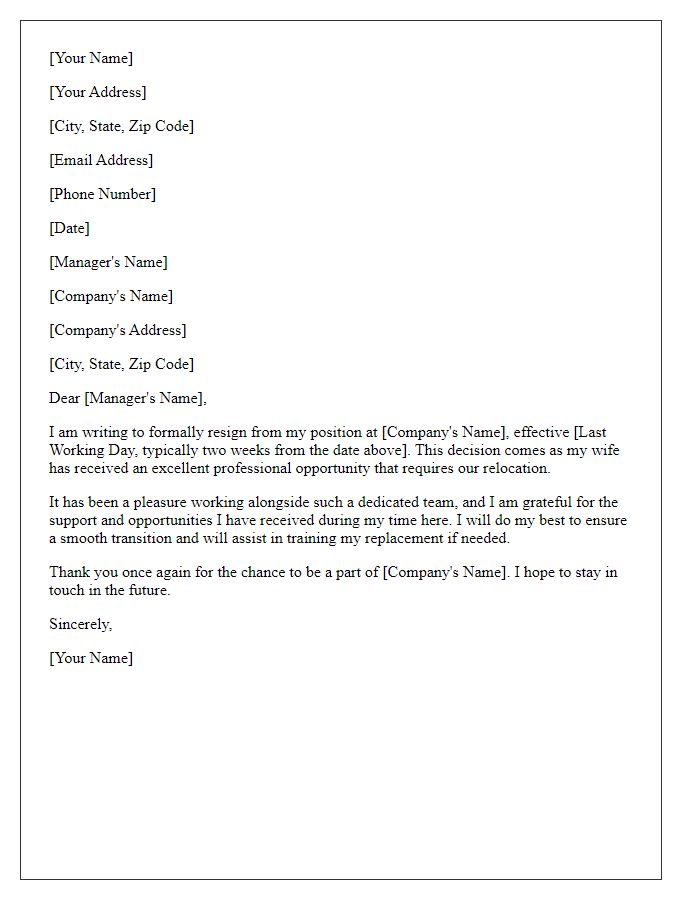
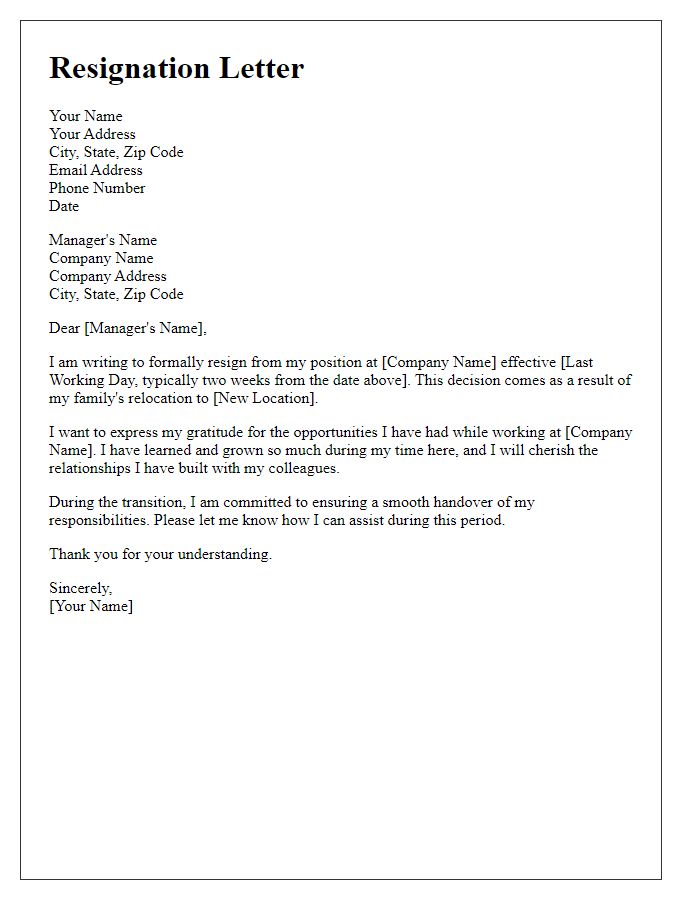
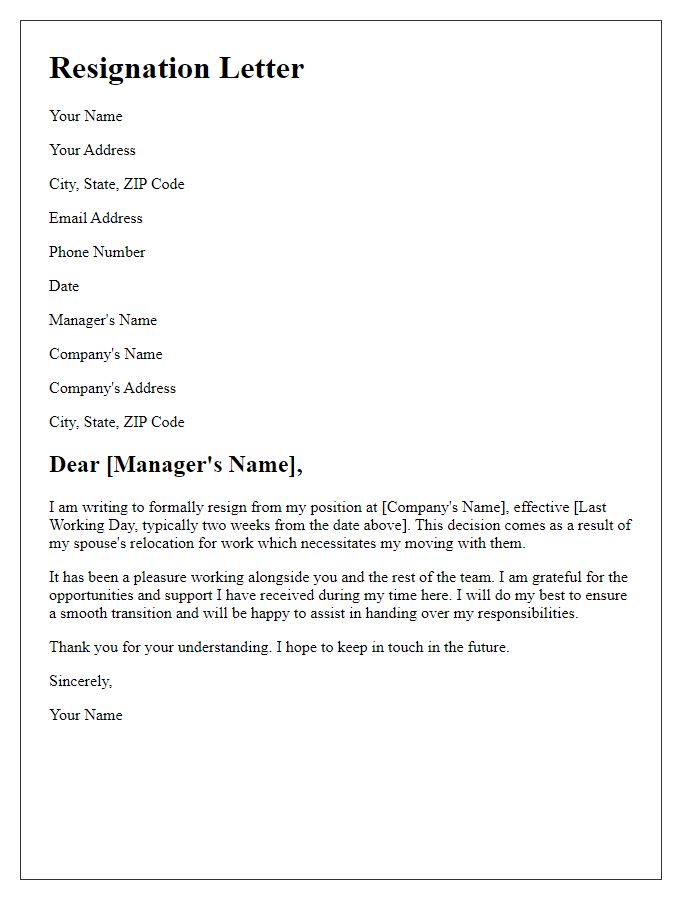
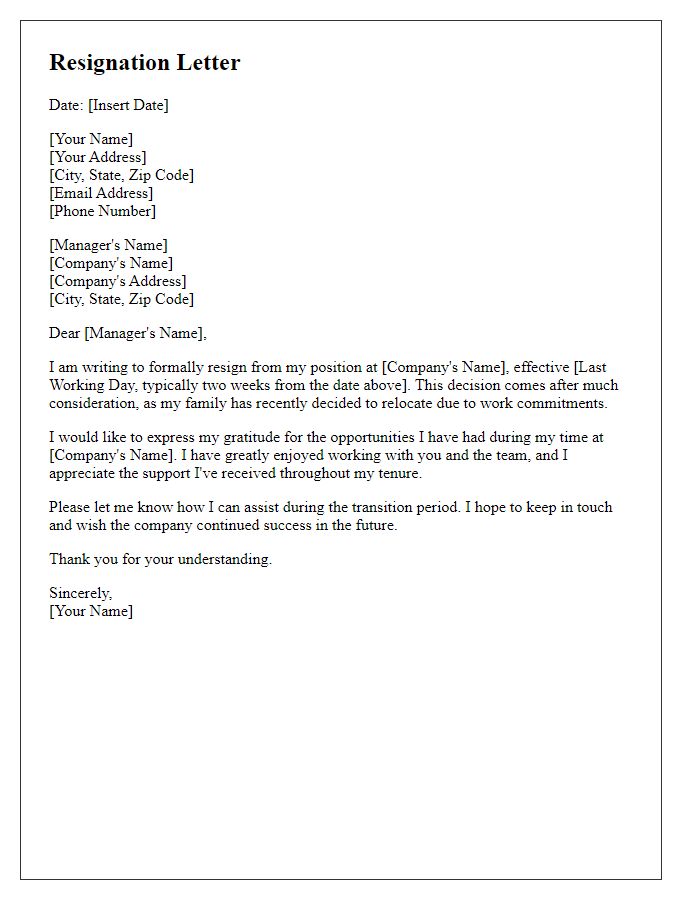


Comments